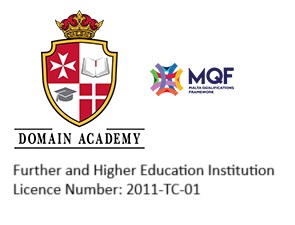Award for English Proficiency as a Foreign Language
This progamme is designed to teach a variety of skills relevant to the world of international communication to help students develop a greater range of vocabulary for everyday situations in a cross-cultural society.
Intake
All year round
EQF / MQF Level
Level 2
Mode of Delivery
Traditional
Duration of Course
7 weeks – Full-Time, 10 Hours per Week
Operational End Date
N/A
N/A
ECTS Credits
5 ECTS
Programme Qualifies for
Certificate after completing
Student Success Rate
100
Intake
All year round
EQF / MQF Level
Level 2
Mode of Delivery
Traditional
Duration of Course
7 weeks – Full-Time, 10 Hours per Week
Operational End Date
N/A
N/A
ECTS Credits
5 ECTS
Programme Qualifies for
Certificate after completing
Student Success Rate
100
Course Description
Course Description
The course involves activation of key language through case studies involving real-life scenarios to give learners a chance to put into practice what they have learnt. Learners will be able to develop skills in communicating more effectively in a range of every day situations such as interview skills, presentation skills, note taking skills, meeting skills,socialising/networking, correspondence, report and email writing as well as reading skimming and scanning skills. By the end of the course, students will be able to express opinions and handle discussions more confidently, as well as use key language more effectively.
Target Group:
Adult learners who attend general English course to obtain CEFR levels A1 to C2. As a further substantial qualification students will be able to build up their level of general English, working towards obtaining a Level 2 Award in English Proficiency as a Foreign Language once they reach B1 level.
Target Audience:
- 18+
Course Language:
English
Where you will learn:
What you will study
Use key language through case studies involving real-life scenarios to give learners a chance to put into practice what they have learnt. Develop skills in communicating more effectively in a range of every day situations such as interview skills,presentation skills, note taking skills, meeting skills, socialising/networking, correspondence, report and email writing as well as reading skimming and scanning skills. Express opinions and handle discussions more confidently, as well as use key language more effectively.
At the end of the module/unit the learner will have acquired the following skills:
a)Use functional language for everyday situations.
b)Participate in discussions and debates.
c)Participate in telephone/conference calls.
d)Use formal/informal register appropriately in correspondence.
e)Take notes during lectures.
f)Participate in an interview.
g)Participate in a meeting.
h)Read and listen for detail of gist.
I)Negotiate a deal.
j)Speak fluently and intelligibly.
How will you learn
In Class: Guided workshops involving the development and practical application of a particular language point or core skills: reading, writing, listening and speaking,
Outside of Class: Supervised fieldwork – carrying out tasked based activities externally to activate target language.
Self-study includes:
- 2 presentations – talks on a particular topic and using language points covered in lectures.
- Guided independent learning – private study/research.
Assessment
Final assessment includes 4 components:
- Written – email or report
- Reading comprehension
- Listening comprehension
- Speaking assessment
Entry Requirement
The course is designed for non-native English speakers who must provide evidence that they are competent in the English Language at minimum CEFR Level B1 from a recognised English language school.
Fees & Funding
MFHEA Licence Nº: 2011 – TC – 01
Further and Higher Education Institution
Listen to what our past students had to say;
Domain Academy proudly collaborates with:



28 Years
of Excellence
8,000+
Satisfied Alumni
98%
Student Success Rate
250+
Active Students












